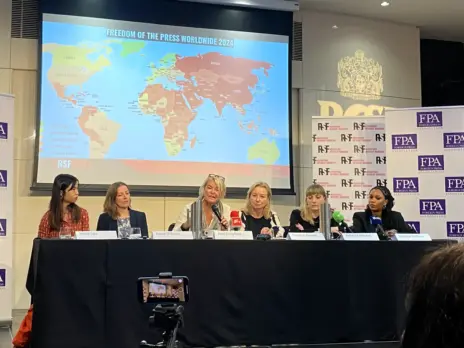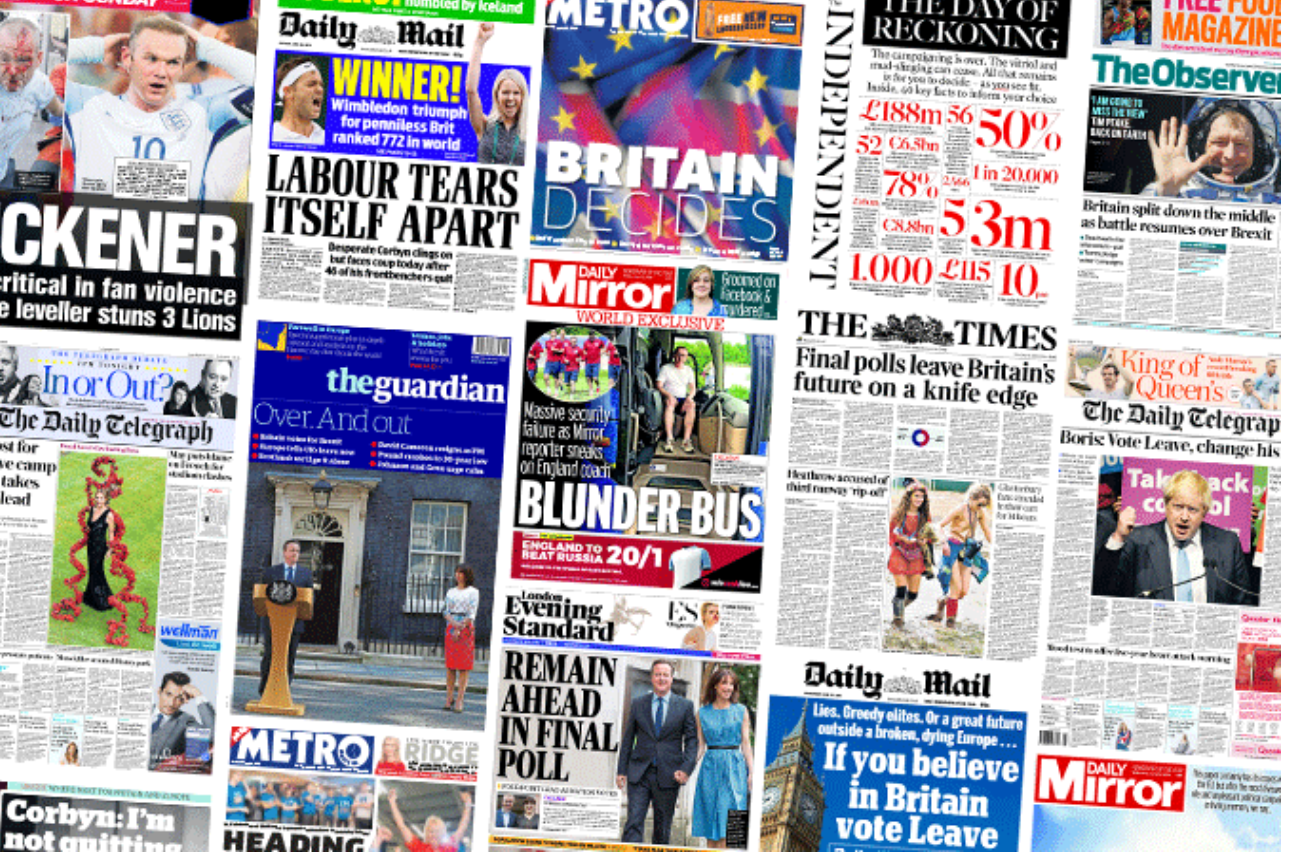
The Reuters Digital News Report has found a sharp fall in trust for UK news media over the last year.
Its UK findings are based on a Yougov survey of 2,000 and it found that 43 per cent said they trust news (down 7 per cent compared with the previous year).
This placed the UK 17th out of 36 countries surveyed. Some 51 per cent said they trust “the news I use”.
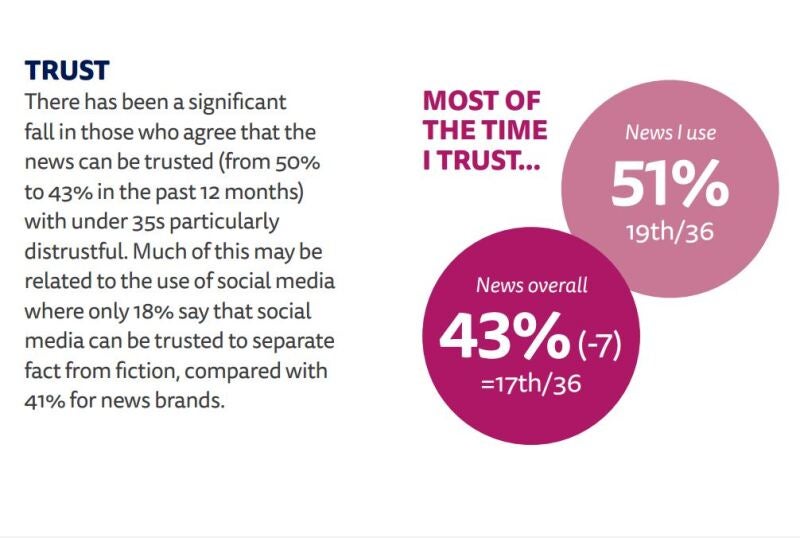
The report said: “Trust in the UK media took a significant knock in the wake of a bruising and polarising Brexit campaign.
“The role of the BBC came under particular scrutiny, with the referendum taking place when the corporation was seeking a new charter.
“Remainers accused the BBC of pursuing ‘unthinking balance’ and failing to expose the exaggerations and distortions of the Leave side. The right-wing press and websites played a key role as cheerleaders of the Leave campaign as well as attacking the BBC for a perceived pro-EU bias.
“None of this has enhanced the reputation of mainstream journalism, at the same time as the growth of social media exposed people to alternative perspectives and a more emotive form of news.
“Polarised news sites such as left-leaning the Canary and alt-right Breitbart have started to pick up (some) traction in the UK on the back of increased social media use.”
The survey found that around 50 per cent now use smartphones to access news (level with desktop computers).
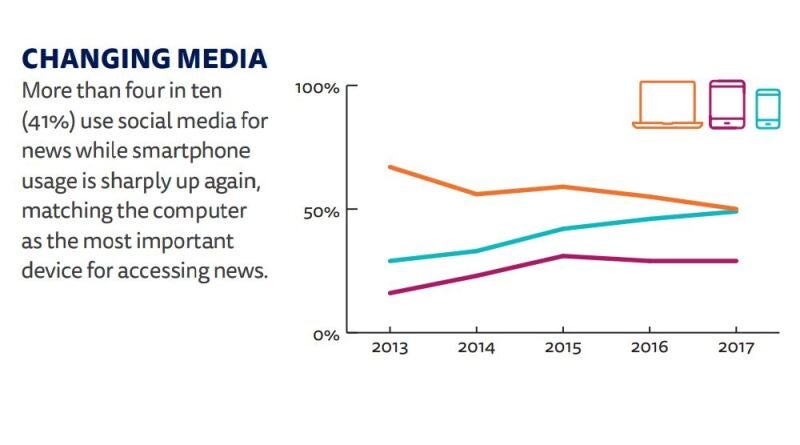
The survey found that some four in ten (41 per cent) use social media to access news (the same as print).
Online has overtaken TV as the most popular source of news, the survey claims.

The survey found that the BBC continues to dominate the UK news media landscape.
Some 67 per cent said they access BBC news via TV and radio on at least a weekly basis.
Among broadcast and print brands, ITV News was in second place (with 33 per cent using it weekly) followed by Sky News (on 23 per cent) and then The Sun on (16 per cent).
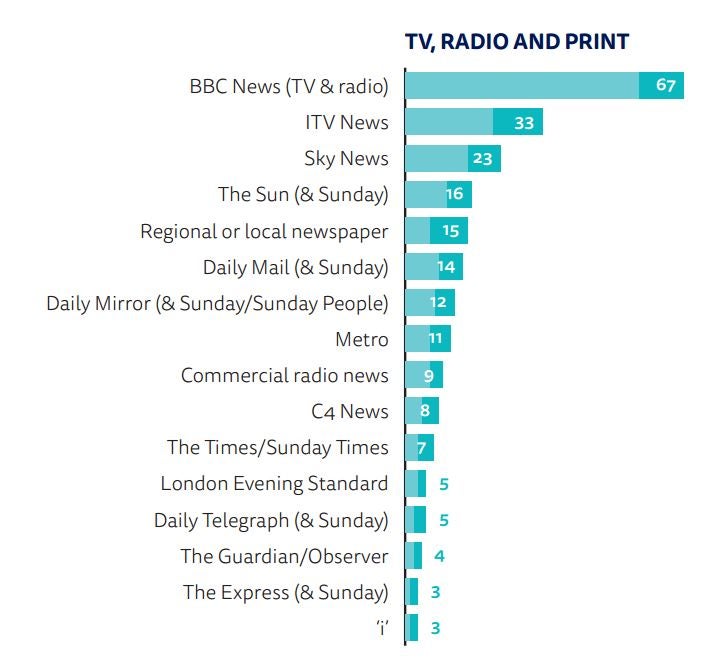
In terms of online players, BBC News Online was the most popular with 47 per cent using it weekly. The Guardian, Mail Online and Huffington Post tie for third place with 14 per cent using them on a weekly basis.
Buzzfeed also features in the most popular online news sources list with alternative news sites Breitbard and The Canary just outside the main table and cited by 2 per cent of respondents.
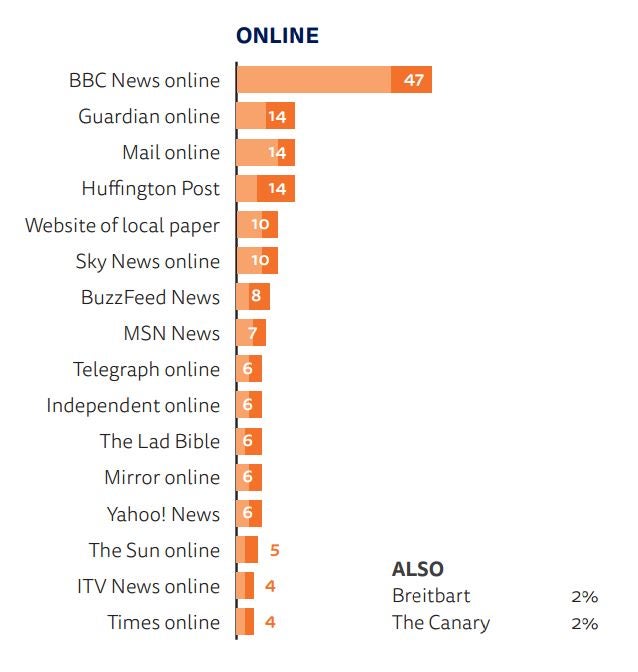
The survey found that Facebook is both the most popular social network overall and as a source of news.
Some 29 per cent of respondents said they use Facebook to access news, followed by Twitter on 12 per cent and the Youtube on 7 per cent.
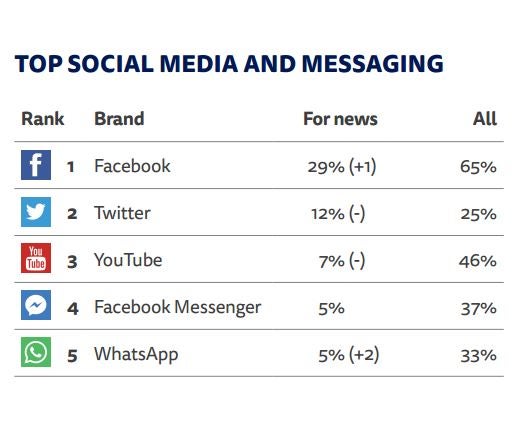
Looking at the bigger global picture, report co-editor and Reuters Institute Director of Research Rasmus Kelis Nielson said: “We find profound scepticism of news media and especially news on social media in almost every country we cover.
“We still see about half the population say they trust the news in some countries, especially in Northern Europe, but it is clear that professional journalists, news media, and technology companies are all viewed with considerable scepticism by most people in most countries.”
Worldwide the report found that some 29 per cent said they often or sometimes avoid the news. Of these 44 per cent said it was because it had a negative effect on their mood and a third said it was because they can’t rely on the news to be true.
The United States has seen a surge in the number of people prepared to pay for news, from 9 per cent to 16 per cent.
There is said to be a strong correlation between those paying for online video services like Netflix or music services like Spotify – and paying for online news.
In the UK only 6 per cent say they pay for online news (ranking the UK 34th out of 35 countries.
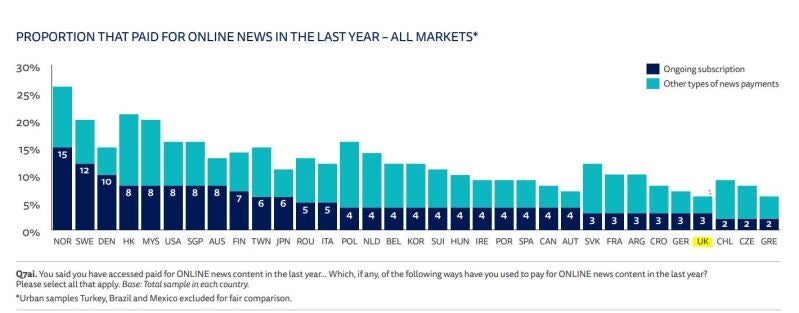
The report said: “Though the economic outlook for most media companies remains extremely difficult, not all the indicators are getting worse. The growth of ad-blocking has stopped while online subscriptions and donations are picking up in some countries.
“Our focus groups provide some encouragement that more might be prepared to pay in the future if content is sufficiently valuable, convenient, and relevant.”
Fake News (when defined as news invented to make money or discredit others) does not appear to be an issue outside the United States with “very few” able to recall having seen it.
However “political bias” in the media is a widespread concern.
“The abundance of content on the internet combined with new forms of distribution have contributed to a crisis of confidence in journalism where it is hard to distinguish verified facts from untruths, ‘alternative facts’, or information that is laced with extreme agendas.
“At the same time, the production of undifferentiated news, often with clickbaity headlines, is now being exposed by social distribution where consumers are less aware of the original sources and don’t go out of their way to choose a specific news brand.
“As a result we are reaching a crisis point where the pressure is building on both media companies and platforms to come up with solutions. That’s why we are seeing more news organisations refocusing on quality, unique journalism that people would be prepared to pay for,10 as well as ways to demonstrate the transparency, fairness, and accountability of their journalism (fact-checking, reader editors, etc.).
“And there is also a new focus on audience engagement, on driving ‘quality reach’ rather than just big numbers, and on building habit though email and mobile notifications.”
Read the 2017 Reuters Digital News Report in full.
Email pged@pressgazette.co.uk to point out mistakes, provide story tips or send in a letter for publication on our "Letters Page" blog


